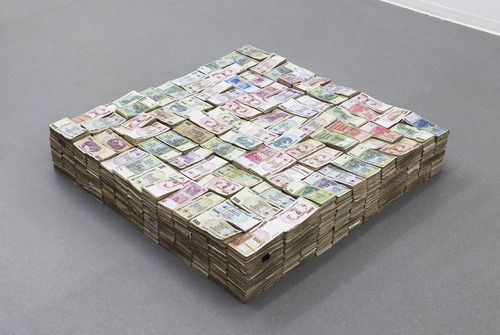Survey reveals the political and economic state of Zimbabwe
Wednesday, February 20th, 2013 by Lenard KamwendoAs the nation gears up for a constitutional referendum, approximately seven in every ten people claim to have heard about the COPA process and 59% claim to be aware of the draft Constitution of Zimbabwe published in July 2012. The figure drops to 30% of adult Zimbabweans reported to have heard about the Second National All-Stakeholders’ Conference.
The Mass Public Opinion Institute revealed these results yesterday at a dissemination meeting on the State of the Economy and People’s Survival Strategies survey. The survey covered the period from 2009 to 2012 and had a national sample size of 1200 randomly selected participants, above 18 years of age.
Politics still dominate the economic turn-around of the country. The survey revealed that 16% of people interviewed think the Inclusive Government should seek external aid and create a more conducive environment for investment. According to public opinion, state organs and institutions were performing badly regarding the Global Peace Agreement. A majority (57%) of the respondents were not in favour of increasing the term of office for the Inclusive Government. The survey data shows the general impression that Zimbabweans will vote YES in the referendum but a substantial proportion said they do not know how they will vote since some claim not to have ever heard about the draft Constitution and the COPAC process.
Perceptions on the death penalty in Zimbabwe show a contrasting view to that published in the COPAC report. The MPOI survey shows 53 % of people interviewed to be in support of the abolishment of the death penalty. The support mainly came from female respondents.
On the issue of national elections this year, Zimbabweans of voting age feel the nation is ready to hold the election. Only a small portion (25%) disagrees as compared to 68% who are in favor of elections this year. Much emphasis on the need to engage international observers from SADC, EU and UN was suggested to ensure free and fair elections. The survey projected a closely fought race between ZANU PF and MDC-T with the latter still commanding a large support base in urban areas, especially among the male electorate.
On the economic state of the nation, 58% of the people interviewed felt that availability of consumer goods had become better over a period of one year but 59% of the urban respondents lamented the worsening employment crisis. The multi-currency system adopted by the nation continues to receive nationwide support with 68% supporting the dollarization of the economy.
The survey also noted high incidences of poverty as 61% of Zimbabweans indicated that they have sometimes gone without clean water, 62% say that they have not had enough to eat, and 70% lacking adequate medicine.
The source of income for many Zimbabweans is still agriculture with a few depending on a regular salary. Others have engaged in income generating activities like cross border trading.










